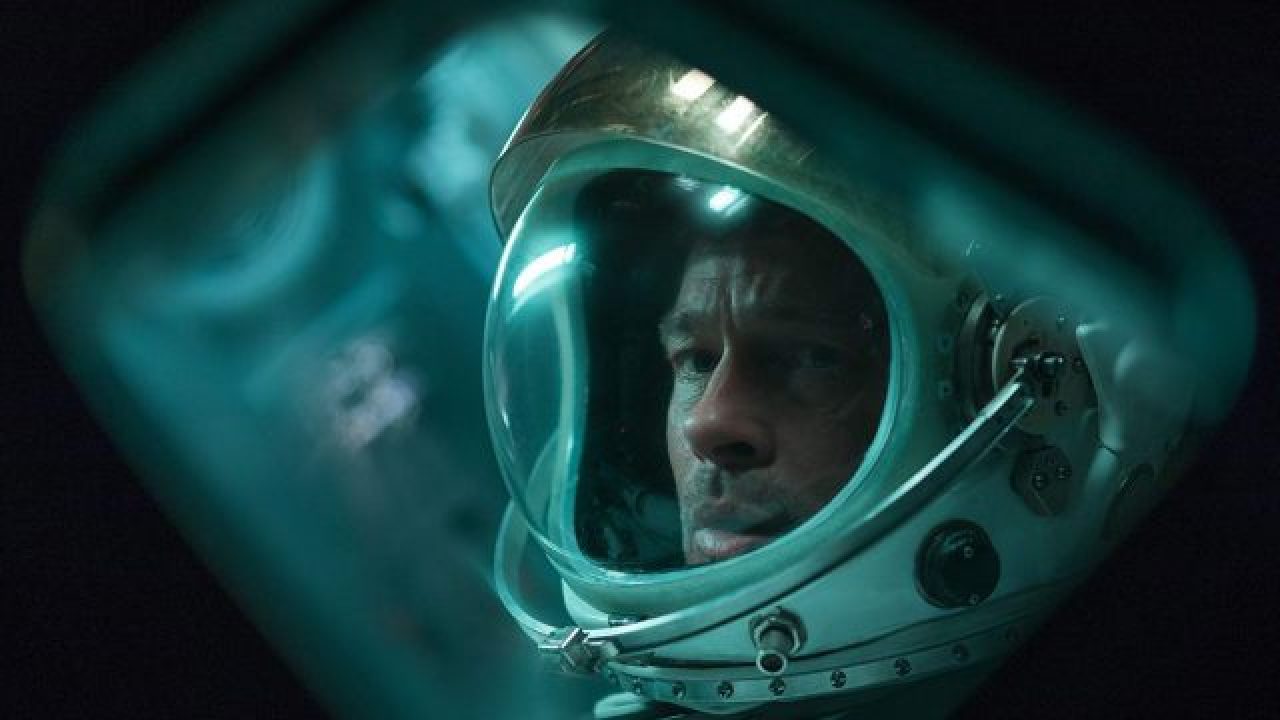GamesRadar+ Verdict
Sublime and stupendous. Beautiful, bold and remarkably executed, this is Gray’s masterpiece, driven by a career-best turn from Pitt.
Why you can trust GamesRadar+
“I always wanted to be an astronaut, for the future of mankind and all,” intones Brad Pitt in James Gray’s wondrous sci-fi. Set in the near future, at a time when “humanity looks to the stars”, Ad Astra casts Pitt as Roy McBride, a space explorer who is unquestionably made of the right stuff. Even in the most extreme of situations, his pulse rate never rises above 80.
McBride is miles above Earth when we first join him, climbing on the International Space Antenna and making adjustments as if he were up a first-floor ladder. Then, suddenly, a huge explosion causes him to tumble to Earth, a parachute thankfully slowing his fall in the first of several thrilling set-pieces dreamed up by Gray (The Lost City Of Z) and co-writer Ethan Gross, a long-time collaborator stretching back to the director’s second film, The Yards.
As McBride is told in the debriefing session, the explosion came as part of a worldwide power surge caused by cosmic ray bursts arriving from Neptune. But this is seemingly no accident; 29 years earlier, a mission called the Lima Project – led by our hero’s own astronaut father, Clifford McBride (Tommy Lee Jones) – set off for the same planet on an exploratory trip to seek out new life.
Described by Roy as a “pioneer”, McBride Snr was the first man to reach Jupiter and Saturn, but he has not been heard from in years and was presumed dead. Now, the government are convinced he is behind the power surges. McBride Jnr’s mission is to head to Mars, the last manned outpost in our solar system, where he can reach a secure transmission facility in an attempt to send a scripted message to his father.
Over the moon
Initially, McBride must travel incognito on a commercial flight to the Moon. Joining him is Col Tom Pruitt (Donald Sutherland), who will chaperone him to a rocket bound for Mars. Amusingly, their flight is operated by Virgin – it seems Richard Branson’s desire for space travel comes true after all, although McBride is charged $125 for a “blanket-and-pillow pack” to make his trip more comfortable.
When they make it to the Moon – which has been grossly commercialised, T-shirt vendors and all – Pruitt and McBride head to the Mars rocket. In buggies, they are chased down by unidentified pirates in a staggering sequence, one that fully takes into account the physics of the Moon’s gravity. Yet there is much more to come as McBride travels to the Red Planet, beautifully visualised by Gray and his Director of Photography, Hoyte van Hoytema (Dunkirk).
Pitt’s voiceover interjects throughout, as he muses on his troubled relationship with his father, absent for all of his adult life, and on his wife, Eve (Liv Tyler), who shimmers in his memories. The obvious forebear is Apocalypse Now, with Tommy Lee Jones’ “legend” the out-of-this-world equivalent to Marlon Brando’s Colonel Walter E Kurtz.
After a potent mid-film turn from Ruth Negga as McBride’s contact on Mars, who has her own personal interest in the Lima Project, the emotional chords are struck deeply in the final act, where Gray lays bare the old adage about the son suffering the sins of the father. Best of all, following his fine work in Once Upon A Time… In Hollywood, Pitt is on sensational form with the most mature, resonant performance of his career. Could it be time for his first acting Oscar?
James Mottram is a freelance film journalist, author of books that dive deep into films like Die Hard and Tenet, and a regular guest on the Total Film podcast. You'll find his writings on GamesRadar+ and Total Film, and in newspapers and magazines from across the world like The Times, The Independent, The i, Metro, The National, Marie Claire, and MindFood.




